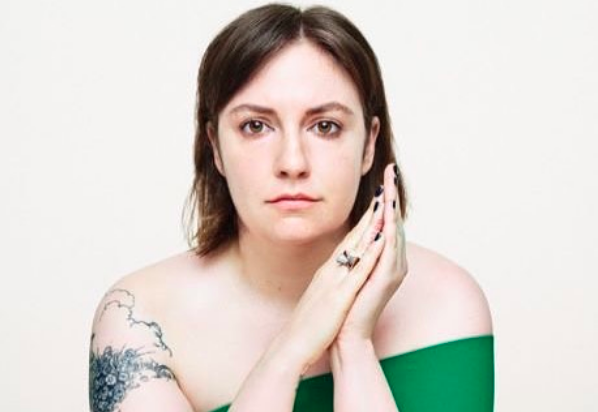
Image: Instagram/@lenadunham
Lena Dunham was recently criticized by Syrian-American author Alia Malek on social media after the former was chosen to write the script of “A Hope More Powerful Than The Sea” — a feature film adaptation by Steven Spielberg and J.J. Abrams.
The nonfiction biography was published by United Nations spokesperson Melissa Fleming back in 2017 and tells the story of Syrian teenager Doaa Al-Zamel’s journey, fleeing her war-torn home of Syria to northern Europe.
Malek took to Twitter on Oct. 29 where she aired out her grievances over Spielberg’s and Abrams’ decision to have Dunham, a white woman, write the film’s script. Malek had a lot to say about the issue, sharing that “tone deaf, self-congratulatory” Hollywood just seemed unable to learn from its past mistakes.
“I appreciate @lenadunham @jjabrams Spielberg using their high profile to highlight #Syria stories. But why not enable Syrian storytellers?” Malek wrote, saying that there are so many Syrian writers and directors who were more intimately acquainted with the story than Dunham.
She added that should there be no Syrian writers and directors found, “There are also Iraqi Lebanese Palestinian Egyptian and Arab American artists who are more intimately acquainted with these stories. Some of them are already in Hollywood.”
If no Syrians can be found, there are also Iraqi Lebanese Palestinian Egyptian and Arab American artists who are more intimately acquainted with these stories. Some of them are already in Hollywood…
— Alia Malek عليا مالك (@AliaMalek) October 29, 2018
Malek could not help but relate the issue to Barry Jenkin’s Academy Award-winning “Moonlight” — a coming of age film that centers around the main character’s youth, adolescence and adult life, putting to light the struggles that come with being black and the discrimination he had to face as a gay man. It is the first film with an all-black cast and also the first LGBTQ film to win an Academy Award for Best Picture.
“We understand this in the context of black folks,” Malek continued to say. “By now, Hollywood (& publishing houses) see the value of having people from a specific community/race/gender/experience shape the narratives about them. The pay off is in depth, authenticity and intimacy.”
She added, “There’s a reason @BarryJenkins Moonlight is so incredibly profound.”
We understand this in the context of black folks. By now, Hollywood (& publishing houses) see the value of having people from a specific community/race/gender/experience shape the narratives about them. The pay off is in depth, authenticity, and intimacy
— Alia Malek عليا مالك (@AliaMalek) October 29, 2018
Malek also wrote that despite the best of intentions, sometimes the best intention is to “step aside” and “hand the microphone over to the very people who’ve been excluded from telling their own stories.”
Malek, too, called out the United Nations High Chair for Refugees (UNHCR) which, although being an important institution, has supposedly based its entire existence “on the misery of refugees.”
On the UNHCR: it’s an important organization. But it’s also an institution whose entire existence is based on the misery of refugees. & one that many refugees have to depend on. That power dynamic should make us all uncomfortable, no matter how many safeguards were taken
— Alia Malek عليا مالك (@AliaMalek) October 29, 2018
“Keep in mind that plenty of Syrians are out there telling their own stories w/o the intermediary of UNHCR & who can do it in many languages themselves. Dear Hollywood (and other gatekeepers), let’s hear from them.”
keep in mind that plenty of Syrians are out there telling their own stories w/o the intermediary of UNHCR & who can do it in many languages themselves. Dear Hollywood (and other gatekeepers), let's hear from them
— Alia Malek عليا مالك (@AliaMalek) October 29, 2018
Dunham, from her end, responded to Syrian-Cuban author Suzanne Samin on Twitter last Oct.29, saying that she is open to engaging in dialogue after Samin asked her if she has ever donated to Syrian refugee relief efforts.
“Hey @lenadunham just out of curiosity, have you donated to any Syrian refugee organizations or relief efforts?” Samin asked. “Just curious if you’ve at least done that before you profit off my people’s pain!”
If you’d ever like to discuss the project, I like to receive perspectives and engage in dialogue ❤️
— Lena Dunham (@lenadunham) October 29, 2018
Dunham wrote back, “If you’d ever like to discuss the project, I like to receive perspectives and engage in dialogue.”
As of this writing, Dunham has yet to respond to Malek. JB
RELATED STORIES:
Steven Spielberg, J.J. Abrams pick Lena Dunham to adapt ‘A Hope More Powerful Than The Sea’
Refugee-now-supermodel Halima Aden fights for migrant children’s rights
Man arrested for eating breakfast with woman in Saudi Arabia